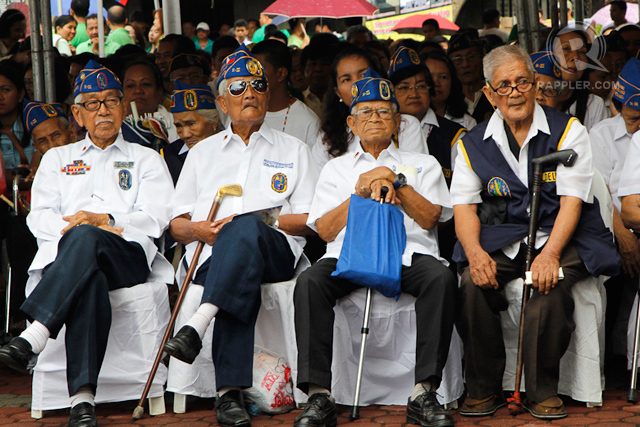SUMMARY
This is AI generated summarization, which may have errors. For context, always refer to the full article.

MANILA, Philippines – It’s been seven decades since World War II. Many Filipino veterans who fought alongside their American counterparts against the Japanese are long gone. But US President Barack Obama recently announced recommendations to include making it easier for Filipino World War II veterans to petition their family members to come to the United States.
Most FIlipino veterans living in the US are in their 80s and 90s and have no one to take care of them. They may have pending petitions for their sons or daughters to migrate to the US, but due to the long backlog, it could take up to 20 years before their relatives can live on US soil.
The new policy is one of several of the administration’s executive actions related to immigration reform. Much of the way people apply for visas and immigration petitions is still paper-based and slow, Obama noted on July 15. So the White House is advising the Department of Homeland Security to modernize this system by going paperless, among other measures.
For relatives of Filipino veterans, they can apply for parole on a case-by-case basis. Parole would allow children of the veterans to live and work in the United States while waiting for permanent resident status or a green card.
Revoked rights
“In 1941, more than 260,000 Filipino soldiers responded to President Roosevelt’s call to arms and fought under the American flag,” the White House said in its document on “streamlining” the immigration system.
Thousands of veterans migrated to the United States after the war, believing they would be granted full benefits as US military veterans. But the Rescission Act of 1946, signed by former US President Harry Truman, revoked health, pension and other benefits from Filipino veterans.
Of the over 60 countries who fought with the US, only the Philippines was denied benefits. The reason? The US, who had previously held the Philippines as a colony, gave the country $200 million in funds after the war. But hardly any of that money – if any – trickled down to Filipino veterans who fought in the war.
Delayed benefits
In 2009, the Investment and Recovery Act, signed by President Barack Obama granted a $9,000 lump sum to veterans living in the Philippines and $15,000 for veterans who were based in the United States.
Some veterans ran into problems claiming the lump some as it did not count Philippine Army records in considering applicants. But the US later decided to consider Philippine records for veterans based in the Philippines claiming their lump sums. There are still, however, veterans unlisted from the US Army records that remain ineligible to receive benefits.
“It’s an injustice,” Obama said on his first visit to the Philippines in 2014. US lawmakers began introducing legislation pushing for full benefits for Filipino veterans in 1993. But it was only in 2009, nearly 63 years after the war, where Filipino veterans began receiving any sort of benefits and official recognition as war veterans. – Rappler.com
Add a comment
How does this make you feel?
There are no comments yet. Add your comment to start the conversation.